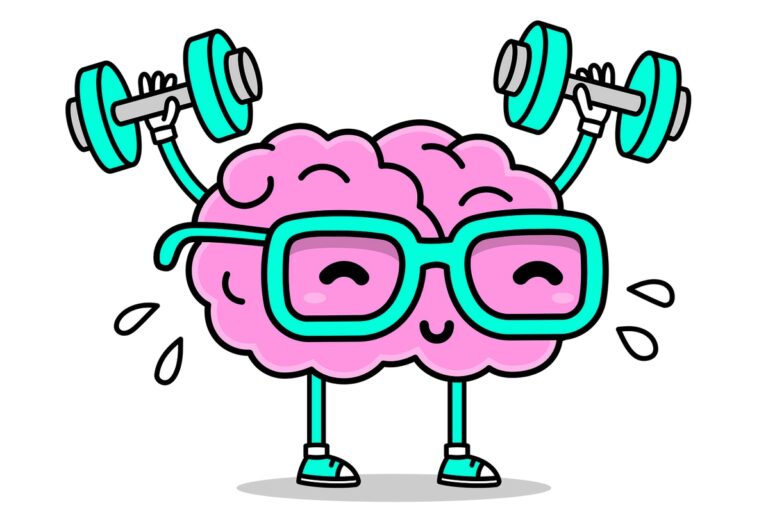MDMA, also known as ecstasy or Molly, is a psychoactive drug that gained popularity in the 1980s and 1990s as a recreational substance. However, recent research has uncovered its potential as a powerful tool in mental health treatment. MDMA was first synthesized in 1912 by the German pharmaceutical company Merck.
Initially, it was developed as a potential appetite suppressant, but its psychoactive properties were soon recognized. In the 1970s, the clinical effects of MDMA was explored by therapists who believed it could enhance the effectiveness of traditional talk therapies. However, due to its rise as a recreational drug, MDMA was classified as a Schedule I controlled substance in the United States in 1985, effectively halting research into its therapeutic uses.
Understanding the effects of MDMA on mental health
MDMA is classified as an empathogen, meaning it enhances feelings of empathy and connection with others. The drug works by increasing the release of neurotransmitters such as serotonin, dopamine, and norepinephrine in the brain. This results in a heightened sense of well-being, increased emotional openness, and a reduction in fear and anxiety. In a therapeutic setting, these effects can facilitate deep introspection and emotional processing, allowing individuals to address and heal from traumatic experiences or deeply ingrained emotional patterns. MDMA-assisted therapy is typically conducted in a controlled environment with trained therapists, where the drug is administered to enhance the therapeutic process.

The potential benefits of MDMA-assisted therapy
MDMA-assisted therapy shows promise in the treatment of various mental health conditions, including post-traumatic stress disorder (PTSD), anxiety disorders, and depression. Research has shown that MDMA can help individuals with PTSD process traumatic memories and reduce the associated symptoms. In a groundbreaking study conducted by the Multidisciplinary Association for Psychedelic Studies (MAPS), 67% of participants who received MDMA-assisted therapy no longer met the criteria for PTSD after just three sessions. This is compared to only 23% of participants in the control group who received a placebo. These findings suggest that MDMA-assisted therapy could revolutionize the treatment of PTSD and provide relief for those who have been unresponsive to traditional therapies.
Research studies and clinical trials on MDMA and mental health treatment
In recent years, there has been a resurgence of interest in the therapeutic potential of MDMA. Clinical trials and research studies are being conducted to further explore its efficacy and safety. One such study, known as the Phase 3 clinical trial, aims to gather the necessary data to support the approval of MDMA-assisted therapy for PTSD by the U.S. Food and Drug Administration (FDA). Preliminary results from this trial have been promising, with participants reporting significant reductions in PTSD symptoms and improvements in overall well-being. Other ongoing studies are investigating the use of MDMA in the treatment of anxiety disorders, depression, and addiction.
MDMA’s impact on PTSD and other mental health disorders
PTSD is a debilitating condition that affects millions of people worldwide. Traditional treatment approaches, such as talk therapy and medication, have shown limited effectiveness for many individuals. MDMA-assisted therapy offers a new approach that combines the benefits of psychotherapy with the therapeutic effects of MDMA. The drug’s ability to enhance empathy and emotional processing can help individuals with PTSD confront and work through traumatic memories in a safe and supportive environment. Additionally, MDMA has shown promise in the treatment of other mental health disorders, such as anxiety and depression, by promoting emotional healing and increasing feelings of well-being.

Safety considerations and precautions when using MDMA in therapy
While MDMA-assisted therapy holds great promise, it is important to approach its use with caution. MDMA is a powerful substance that can have significant physiological and psychological effects. It should only be administered in a controlled and supervised therapeutic setting by trained professionals. Additionally, individuals with certain medical conditions or a history of substance abuse may not be suitable candidates for MDMA-assisted therapy. Safety protocols, such as thorough medical screenings and appropriate dosing, must be followed to minimize potential risks. It is also crucial to provide comprehensive pre and post-session integration support to ensure the well-being and long-term benefits of individuals undergoing MDMA-assisted therapy.
MDMA vs. traditional mental health treatments: a comparison
MDMA-assisted therapy differs from traditional mental health treatments in several key ways. Unlike traditional talk therapies, which rely on verbal communication alone, MDMA-assisted therapy incorporates the use of the drug to enhance the therapeutic process. MDMA’s effects can facilitate deep emotional exploration and make it easier for individuals to access and process difficult emotions. Traditional treatments, on the other hand, may take longer to achieve similar results and may not be as effective for individuals who struggle to express their emotions verbally. However, it is important to note that MDMA-assisted therapy is not intended to replace traditional treatments but rather to complement them.
The future of MDMA-assisted therapy and its potential impact on mental health care
As research into MDMA-assisted therapy continues to advance, its potential impact on mental health care is becoming increasingly evident. The promising results of clinical trials and research studies suggest that MDMA could revolutionize the treatment of various mental health conditions, offering new hope for individuals who have not found relief with traditional approaches. If approved by regulatory bodies, MDMA-assisted therapy could become an important tool in the mental health care toolkit, providing a more effective and efficient means of addressing deep-rooted emotional issues. However, further research is needed to fully understand the long-term effects and potential risks associated with MDMA-assisted therapy.

Misconceptions and controversies surrounding MDMA as a therapeutic tool
Despite the growing body of evidence supporting the therapeutic potential of MDMA, there are still misconceptions and controversies surrounding its use. One common misconception is that MDMA-assisted therapy is the same as recreational MDMA use. However, in a therapeutic setting, the drug is administered in carefully controlled doses and under the guidance of trained professionals, ensuring a safe and supportive environment for emotional healing. Controversies surrounding the legal status of MDMA and its classification as a Schedule I controlled substance have limited research and hindered the progress of MDMA-assisted therapy. However, recent shifts in public opinion and the recognition of its therapeutic potential are paving the way for further exploration and acceptance of MDMA-assisted therapy.
Conclusion: the role of MDMA in revolutionizing mental health treatment
MDMA-assisted therapy represents a promising new approach to mental health treatment. Its unique ability to enhance empathy and emotional processing has the potential to revolutionize the way we address deep-rooted emotional issues. While further research is needed to fully understand its long-term effects and potential risks, the positive results from clinical trials and research studies are encouraging. As the field of mental health care continues to evolve, MDMA-assisted therapy could become an important tool in the treatment of conditions such as PTSD, anxiety, and depression. By unlocking the potential of MDMA, we may unlock new possibilities for healing and transformation in the realm of mental health care.

